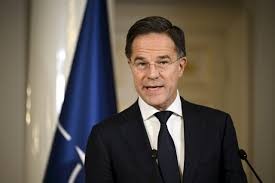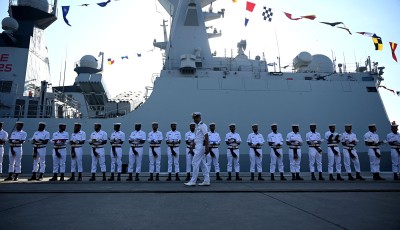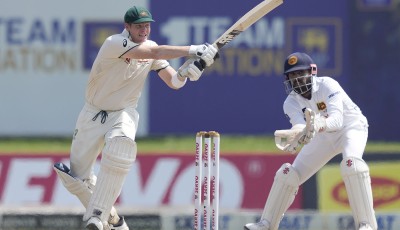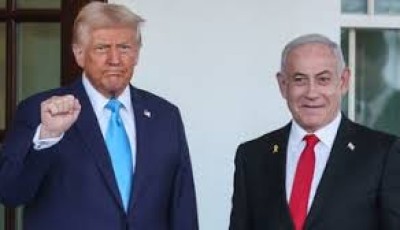Eyeing Trump and Putin, EU, UK, NATO leaders talk defence

On Monday, EU leaders will meet in Brussels with Britain's Prime Minister and NATO's head to discuss bolstering Europe’s defense capabilities in the face of Russia's aggressive actions. At the same time, former U.S. President Donald Trump is calling on America’s allies to significantly increase their defense spending.
This summit marks a historic "triple first": it's the first gathering of the European Union's 27 leaders since the U.S. presidential inauguration, the first-ever dedicated talks on defense, and the first meeting with a British premier since Brexit.
In response to Russia's full-scale invasion of Ukraine nearly three years ago, European countries have ramped up their military spending. However, officials acknowledge that they are not arming themselves quickly enough, especially as fears rise that Russia might soon target another European nation.
Trump’s return to the White House has reignited the debate on Europe’s defense priorities. The outspoken leader asserts that Europe can no longer rely on U.S. protection and demands NATO members increase their defense spending target to 5% of GDP—a goal that many find unattainable.
He also promises to swiftly end Russia’s war in Ukraine, raising concerns that he may sideline European interests and push Ukraine into a disadvantageous peace agreement.
But the threat of U.S. withdrawal is not the only concern. Trump has also rattled U.S. allies with direct threats, such as his insistence on acquiring Greenland. Furthermore, his vow to impose tariffs on the EU has led to a firm response from European leaders, who have vowed to retaliate if targeted.
While there is a broad consensus across Europe on the urgent need to bolster defense, there remains a lack of agreement on how to achieve this.
An EU official noted, “It’s clear to everyone around the table that investment must increase—it’s not a question of if, but how.”
Brussels estimates that the EU needs to invest an additional 500 billion euros ($510 billion) in defense over the next decade. Key points of contention include how to fund this investment, whether EU funds should be allocated exclusively to EU-made arms, and the role NATO should play in setting defense targets.
Geographically, nations closer to Russia are already investing more in defense than those further west. There is also disagreement over financing, with several member states pushing for joint EU borrowing. However, Germany, facing a challenging election, has tried to steer clear of this sensitive discussion.
Some diplomats fear the meeting may become a mere "box-ticking exercise" unless the crucial issue of financing is addressed. In response, EU states have called on the European Investment Bank (EIB) to lift lending restrictions for defense contractors.
France, long accused of prioritizing its own defense industry, insists that arms should be purchased within the EU. Others, however, argue that countries should seek the fastest supplier, potentially turning to the United States as a way to keep Trump onside.
The division of responsibilities between NATO and the EU is also up for debate. Some in the EU believe that Brussels should help determine the defense needs of member states, a suggestion that has drawn criticism from NATO.
Amid uncertainty in the transatlantic relationship, many are eager to strengthen ties with Britain. Prime Minister Keir Starmer, the first UK leader to attend a European Council meeting since Brexit, will advocate for EU leaders to continue pressuring Russian President Vladimir Putin and to “shoulder more of the burden” to protect Europe from Russia’s escalating threats.
Starmer, seeking to reset UK-EU relations after Brexit, will also propose a possible UK-EU defense and security deal. This could bring Britain, with its powerful military and significant defense industry, closer to the EU.
However, the lasting legacy of Brexit remains an obstacle. Numerous EU diplomats have stated that progress will be difficult until disputes over fishing rights are resolved and the UK drops its opposition to a proposed youth mobility scheme from Brussels.
One diplomat emphasized, “There is no avoiding the fact that the future of our relationship on fisheries is critical.”
















तपाईको प्रतिक्रिया दिनुहोस